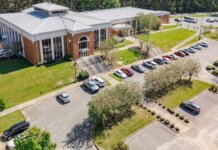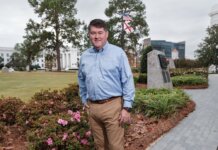
The University of Alabama at Birmingham has been awarded $8 million in federal funding to study additively manufacturing materials under extremes.
Physics professor Yogesh Vohra, who is associate dean for research and innovation in the College of Arts and Sciences, will be principal investigator in the new Center for Additively Manufactured Complex Systems under Extremes.
The center is one of nine Stewardship Science Academic Alliances Centers of Excellence funded by the National Nuclear Security Agency.
UAB has been actively studying the behavior of materials affected by extremes of temperature and pressure.
“UAB has also led the development of many enabling technologies in the high-pressure field,” Vohra said. “This DOE Center of Excellence would allow us to apply our theoretical and experimental expertise to this technological area of additively manufactured complex systems.”
The new center will allow UAB and its four academic partners — Tuskegee University, University of Massachusetts-Amherst, Stanford University and University of California-Irvine — to investigate “behavior of additively manufactured materials in far-from-equilibrium state both under static pressure conditions and under high strain rates representative of shock compression,” the university said in announcing the award.
“The compositionally complex alloys are a relatively new field, and not much is known about phase transformations, compression behavior and strength under varying strain rates in these systems,” Vohra said. “Our long-term goal is to gain fundamental understanding of far-from-equilibrium compositionally complex alloys and glasses under high strain rates so they could be deployed in practice under extreme environments.”
During the years Vohra has been involved in this research, six graduate students who have been trained in the field have joined National Nuclear Security Agency labs. The new funding will allow additional graduate students and post-graduate scholars to participate in the advanced research.



